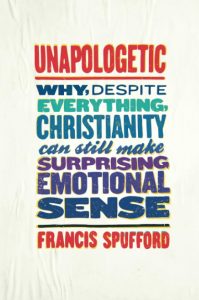 Summary: When a group from Three Pines decides to have a séance to purge the evil spirits of the Hadley house, one of the participants appears to die of fright.
Summary: When a group from Three Pines decides to have a séance to purge the evil spirits of the Hadley house, one of the participants appears to die of fright.
I know some people like to be scared by books or movies or TV shows, I am not one of those people. I have never read a Stephen King novel, I don’t watch horror movies, I won’t watch Walking Dead no matter how many people tell me that I will like it.
So I was put off by the early part of the book. The characters in Three Pines first have a séance for fun, then a semi-serious one to try and rid evil spirits from the Hadley House (which was connected to deaths in the previous two books.) In the end, the murder at the center of the book occurs at the second séance, where a woman appears to have died of fright.
The first two books I enjoyed, but I thought were missing the final piece that makes me want to recommend them. This third book I loved (and the fourth that I am half way through now I love even more.)
The series is set in a small rural village filled with extraordinary people that have escaped the outside world to settle in Three Pines. There is a back story to everyone, and with the first two books it felt like that back story was sitting there and unused. It was hinted at, but without the actual story, the bruised and battered people of Three Pines (as well as the few that have found healing) were just cardboard without the additional background.
This story, about half way through, really started working on giving back story to Inspector Gamache. The case that has hung over the previous two books came to the fore. The conclusion of the book almost minimized the resolution of this murder too much to deal with the problem Gamache’s historical problem. But there was a resolution to it all, or at least enough to keep you reading the series.
 Summary: Science can help us better understand how we are created to know God.
Summary: Science can help us better understand how we are created to know God. Author, blogger, wife and mother Kara Tippets has written “œThe Hardest Peace: Expecting Grace in the Midst of Life’s Hard” charting her spiritual journey from her childhood, to her early days of marriage and motherhood, and to the present as she fights her multiple battles with cancer.
Author, blogger, wife and mother Kara Tippets has written “œThe Hardest Peace: Expecting Grace in the Midst of Life’s Hard” charting her spiritual journey from her childhood, to her early days of marriage and motherhood, and to the present as she fights her multiple battles with cancer. Summary: A collection of sermons, letters, devotional writing, etc on the psalms with helpful biographical introductions.
Summary: A collection of sermons, letters, devotional writing, etc on the psalms with helpful biographical introductions. Summary: Despite what you might have heard, marriage is actually doing pretty well these days.
Summary: Despite what you might have heard, marriage is actually doing pretty well these days. To Kill a Mockingbird is a classic and well-beloved fiction novel by Harper Lee. The novel is from the perspective of a young girl, Scout, growing up in a small town in Alabama during the 1930s. Aside from experiencing some of the usual adventures of a small child during that time, Scout and her brother Jem must navigate life as their father, Atticus, defends a black man who has been falsely accused of raping a white woman. Seen in some way as a story within a story, the trial shows the true character of Atticus and how some bravery and standing up for one’s beliefs and dignity really does matter.
To Kill a Mockingbird is a classic and well-beloved fiction novel by Harper Lee. The novel is from the perspective of a young girl, Scout, growing up in a small town in Alabama during the 1930s. Aside from experiencing some of the usual adventures of a small child during that time, Scout and her brother Jem must navigate life as their father, Atticus, defends a black man who has been falsely accused of raping a white woman. Seen in some way as a story within a story, the trial shows the true character of Atticus and how some bravery and standing up for one’s beliefs and dignity really does matter.
